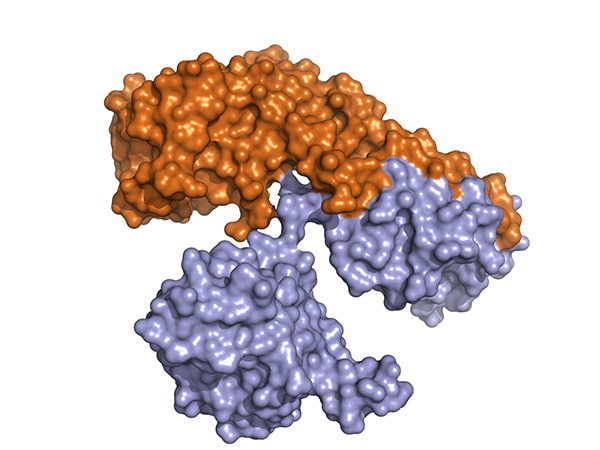Targeting a Rare Blood Cancer: Blastic Plasmacytoid Dendritic Cell Neoplasm
The molecularly targeted therapeutic tagraxofusp-erzs is the first ever treatment approved by the FDA for the treatment of blastic plasmacytoid dendritic cell neoplasm.

The U.S. Food and Drug Administration (FDA) recently approved a new molecularly targeted therapeutic called tagraxofusp-erzs (Elzonris) for treating patients ages 2 or older who have been diagnosed with a rare type of blood cancer called blastic plasmacytoid dendritic cell neoplasm.
With this decision, tagraxofusp-erzs became the first treatment approved specifically for treating patients with blastic plasmacytoid dendritic cell neoplasm.
Blastic plasmacytoid dendritic cell neoplasm is a rare and highly aggressive type of blood cancer. Most patients are treated with a multi-chemotherapeutic treatment regimen. This treatment strategy is initially successful for most patients but ultimately fails to keep the disease at bay. The median survival of patients diagnosed with blastic plasmacytoid dendritic cell neoplasm is just 12 to 14 months, according to the National Cancer Institute.
Research has shown that the blastic plasmacytoid dendritic cell neoplasm cells have high levels of a protein called CD123 on their surface. This led researchers to investigate whether targeting CD123 could provide a new approach to treating patients with this disease.
Tagraxofusp-erzs targets CD123. It is a molecularly targeted cytotoxin because it comprises a CD123-targeting portion linked to the parts of the diphtheria toxin that cause cell death. Once the CD123-targeting portion attaches to CD123 on the surface of blastic plasmacytoid dendritic cell neoplasm cells, the therapeutic is internalized by the cell. At this point, the diphtheria toxin portion is released and causes the cancerous cell to die.
Tagraxofusp-erzs was approved for the treatment of blastic plasmacytoid dendritic cell neoplasm after it was shown in an early-stage clinical trial that seven of 13 patients with previously untreated disease who received the new molecularly targeted cytotoxin had a complete response or a clinical complete response (defined as a complete response with residual skin abnormality not indicative of active disease), according to the statement from the FDA. In addition, one of 15 patients with relapsed or refractory blastic plasmacytoid dendritic cell neoplasm had a complete response and one had a clinical complete response.
Tagraxofusp-erzs is being tested in several other clinical trials as a potential treatment for other types of cancer that have high levels of CD123, including chronic myelomonocytic leukemia.
The FDA approval was rendered on Dec. 21, 2018.
